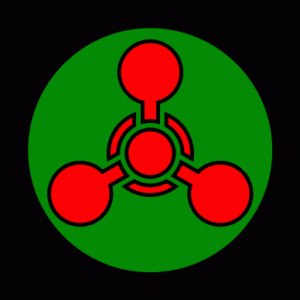
Sursa: chemistry.about.com
S-a scris mult despre cel mai fierbinte subiect al acestor zile, fiind tratat din aproape toate unghiurile posibile, incepand cu cel politico-strategic, religios, trecand prin cel economic, legal si evident, cel militar. Din punct de vedere legal, interventia asupra unui stat suveran nu se poate face fara acordul Consiliului de Securitate si opozitia furibunda a doi membri majori face ca orice discutie despre autorizarea formala a masurii sa fie inutila.
Nu am vazut insa nici macar amintit in treacat fundamentul moral, articulat si recunoscut de ONU, al posibilei interventii militare. Conceptul poarta numele de “Responsibility to Protect” si a fost formulat pentru prima data in 2005, in documentul final al Summitului Mondial.
In 2006, Consiliul de Securitate a votat in unanimitate rezolutia 1674 care face referire la doua paragrafe prezente in documentul din 2005:
“4. Reaffirms the provisions of paragraphs 138 and 139 of the 2005 World Summit Outcome Document regarding the responsibility to protect populations from genocide, war crimes, ethnic cleansing and crimes against humanity;”
Ce contin cele doua paragrafe?
“138. Each individual State has the responsibility to protect its populations from genocide, war crimes, ethnic cleansing and crimes against humanity. This responsibility entails the prevention of such crimes, including their incitement, through appropriate and necessary means. We accept that responsibility and will act in accordance with it. The international community should, as appropriate, encourage and help States to exercise this responsibility and support the United Nations in establishing an early warning capability.
139. The international community, through the United Nations, also has the responsibility to use appropriate diplomatic, humanitarian and other peaceful means, in accordance with Chapters VI and VIII of the Charter, to help protect populations from genocide, war crimes, ethnic cleansing and crimes against humanity. In this context, we are prepared to take collective action, in a timely and decisive manner, through the Security Council, in accordance with the Charter, including Chapter VII, on a case-by-case basis and in cooperation with relevant regional organizations as appropriate, should peaceful means be inadequate and national authorities manifestly fail to protect their populations from genocide, war crimes, ethnic cleansing and crimes against humanity. We stress the need for the General Assembly to continue consideration of the responsibility to protect populations from genocide, war crimes, ethnic cleansing and crimes against humanity and its implications, bearing in mind the principles of the Charter and international law. We also intend to commit ourselves, as necessary and appropriate, to helping States build capacity to protect their populations from genocide, war crimes, ethnic cleansing and crimes against humanity and to assisting those which are under stress before crises and conflicts break out.” Sursa.
Conceptul e destul de clar, conditiile in care aplicarea fortei externe este considerata justificata fiind descrise limpede, insa aplicarea lui in practica este restrictionata de acordul Consiliului de Securitate care este blocat de cei doi importanti membri permanenti. Aceeasi care au votat in 2006 rezolutia 1674.
Ipocrizie, numele tau este…
 August 29th, 2013
August 29th, 2013  admin
admin  Posted in
Posted in